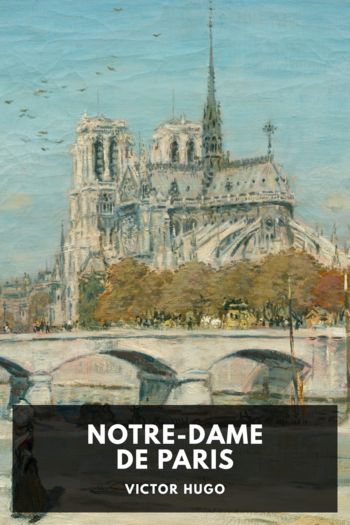of chancellor of France, Regnault des Dormans ousted Pierre Puy from the charge of master of requests in ordinary of the king’s household. Now, upon how many heads had the presidency, the chancellorship, the mastership passed since Robert d’Estouteville had held the provostship of Paris. It had been “granted to him for safekeeping,” as the letters patent said; and certainly he kept it well. He had clung to it, he had incorporated himself with it, he had so identified himself with it that he had escaped that fury for change which possessed Louis
XI, a tormenting and industrious king, whose policy it was to maintain the elasticity of his power by frequent appointments and revocations. More than this; the brave chevalier had obtained the reversion of the office for his son, and for two years already, the name of the noble man Jacques d’Estouteville, equerry, had figured beside his at the head of the register of the salary list of the provostship of Paris. A rare and notable favor indeed! It is true that Robert d’Estouteville was a good soldier, that he had loyally raised his pennon against “the league of public good,” and that he had presented to the queen a very marvellous stag in confectionery on the day of her entrance to Paris in 14–. Moreover, he possessed the good friendship of Messire Tristan l’Hermite, provost of the marshals of the king’s household. Hence a very sweet and pleasant existence was that of Messire Robert. In the first place, very good wages, to which were attached, and from which hung, like extra bunches of grapes on his vine, the revenues of the civil and criminal registries of the provostship, plus the civil and criminal revenues of the tribunals of Embas of the Châtelet, without reckoning some little toll from the bridges of Mantes and of Corbeil, and the profits on the craft of Shagreen-makers of Paris, on the corders of firewood and the measurers of salt. Add to this the pleasure of displaying himself in rides about the city, and of making his fine military costume, which you may still admire sculptured on his tomb in the abbey of Valmont in Normandy, and his morion, all embossed at Montlhéry, stand out a contrast against the particolored red and tawny robes of the aldermen and police. And then, was it nothing to wield absolute supremacy over the sergeants of the police, the porter and watch of the Châtelet, the two auditors of the Châtelet,
auditores castelleti, the sixteen commissioners of the sixteen quarters, the jailer of the Châtelet, the four enfeoffed sergeants, the hundred and twenty mounted sergeants, with maces, the chevalier of the watch with his watch, his sub-watch, his counter-watch and his rear-watch? Was it nothing to exercise high and low justice, the right to interrogate, to hang and to draw, without reckoning petty jurisdiction in the first resort (
in prima instantia, as the charters say), on that viscomty of Paris, so nobly appanaged with seven noble bailiwicks? Can anything sweeter be imagined than rendering judgments and decisions, as Messire Robert d’Estouteville daily did in the Grand Châtelet, under the large and flattened arches of Philip Augustus? and going, as he was wont to do every evening, to that charming house situated in the Rue Galilée, in the enclosure of the royal palace, which he held in right of his wife, Madame Ambroise de Loré, to repose after the fatigue of having sent some poor wretch to pass the night in “that little cell of the Rue de Escorcherie, which the provosts and aldermen of Paris used to make their prison; the same being eleven feet long, seven feet and four inches wide, and eleven feet high?”28
And not only had Messire Robert d’Estouteville his special court as provost and vicomte of Paris; but in addition he had a share, both for eye and tooth, in the grand court of the king. There was no head in the least elevated which had not passed through his hands before it came to the headsman. It was he who went to seek M. de Nemours at the Bastille Saint Antoine, in order to conduct him to the Halles; and to conduct to the Grève M. de Saint-Pol, who clamored and resisted, to the great joy of the provost, who did not love monsieur the constable.
Here, assuredly, is more than sufficient to render a life happy and illustrious, and to deserve some day a notable page in that interesting history of the provosts of Paris, where one learns that Oudard de Villeneuve had a house in the Rue des Boucheries, that Guillaume de Hangest purchased the great and the little Savoy, that Guillaume Thiboust gave the nuns of Sainte-Geneviève his houses in the Rue Clopin, that Hugues Aubriot lived in the Hôtel du Porc-Épic, and other domestic facts.
Nevertheless, with so many reasons for taking life patiently and joyously, Messire Robert d’Estouteville woke up on the morning of the seventh of January, 1482, in a very surly and peevish mood. Whence came this ill temper? He could not have told himself. Was it because the sky was gray? or was the buckle of his old belt of Montlhéry badly fastened, so that it confined his provostal portliness too closely? had he beheld ribald fellows, marching in bands of four, beneath his window, and setting him at defiance, in doublets but no shirts, hats without crowns, with wallet and bottle at their side? Was it a vague presentiment of the three hundred and seventy livres, sixteen sous, eight farthings, which the future King Charles VII was to cut off from the provostship in the following year? The reader can take his choice; we, for our part, are much inclined to believe that he was in a bad humor, simply because he was in a bad humor.
Moreover, it was the day after a festival, a tiresome day for everyone, and above all for the magistrate who is






Comments (0)